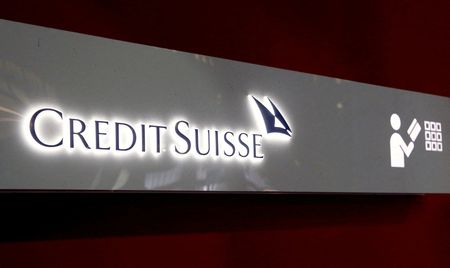 1
1 1
1

BRUSSELS (Reuters) -The main political grouping in the European Parliament called on Monday for a review of Switzerland’s banking practices and for the country’s possible inclusion in the EU’s dirty-money blacklist after leaks of Credit Suisse documents.
Media outlets published the results of investigations into a leak of data on thousands of accounts held at the bank in past decades and said they appeared to show clients included human rights abusers and businessmen under sanctions.
Credit Suisse said it strongly rejected any allegations of wrongdoing and that the media reports were based on “partial, inaccurate or selective information taken out of context”.
The European People’s Party (EPP), the conservative grouping which holds the biggest number of seats in the European Parliament, called on the EU Commission on Monday to “re-evaluate Switzerland as a high-risk money-laundering country” as part of the next review of the list.
The European Commission, which is responsible for drafting and reviewing the list, declined to comment on the EPP’s statement. A spokesperson pointed to the fact that the list was updated last month and no time had been set for the next review.
“Today, Switzerland meets all international standards on the exchange of information in tax matters and on fighting against money laundering, terrorist financing and corruption,” the finance ministry’s State Secretariat for International Finance said in an emailed statement.
“The ‘Swiss Secrets’ findings point to massive shortcomings of Swiss banks when it comes to the prevention of money laundering,” the EPP’s coordinator on economic affairs Markus Ferber said.
“When Swiss banks fail to apply international anti-money laundering standards properly, Switzerland itself becomes a high-risk jurisdiction,” he added.
“Apparently, Credit Suisse has a policy of looking the other way instead of asking difficult questions,” Ferber said. When asked about the group’s statement, the bank said it had nothing to add.
The EU list currently comprises over 20 countries who are deemed to have shortfalls in their rules and practices against money laundering. Among them are Iran, Myanmar, Syria and North Korea. No European country is on the list.
(Reporting by Francesco Guarascio in Brussels; additional reporting by Michael Shields in Zurich; Editing by Andrew Heavens and Hugh Lawson)